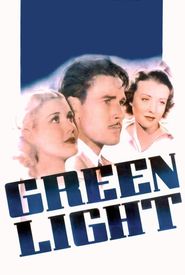Lloyd C. Douglas, a celebrated and accomplished author, came into this world as Doya Cassell Douglas in the charming city of Columbia City, Indiana, during the year 1877. The father of Lloyd, a devoted Lutheran minister, played a pivotal role in shaping his worldview and instilling in him a deep sense of faith from a very early age.
Following the completion of his academic pursuits, he embarked on a spiritual journey, taking up the role of a pastor at a church in Manchester, Indiana, where he dedicated his time and expertise to guiding his congregation.
Subsequently, he relocated to Lancaster, Ohio, in the year 1905, marking the beginning of a new chapter in his life and ministry.
Two years later, in 1907, he made the decision to move to Washington, D.C., a city that would play a significant role in his professional development and spiritual growth.
Upon settling in Washington, D.C., he took on the responsibilities of a chaplain and director of religious work at the University of Illinois, a position that would occupy a substantial amount of his time and energy over the course of several years.
Douglas's illustrious career in the ministry spanned an impressive two decades, during which he had the privilege of serving as the spiritual leader of numerous churches scattered throughout the United States. Yet, in the midst of this remarkable tenure, a significant turning point emerged in 1933, marking a pivotal moment in Douglas's life as he made the momentous decision to bid farewell to his role as a pastor and redirect his energies towards a new and ambitious pursuit: writing.
Douglas's literary journey was characterized by the prolific publication of numerous novels, many of which delved into the realm of religious themes, showcasing his versatility and depth as a writer. Among his most renowned works, the 1942 novel "The Robe" stands out, boasting an astonishing six million copies sold and later being adapted into a successful film, further cementing its place in the literary canon. Additionally, his 1929 novel "Magnificent Obsession" garnered significant attention, and its 1954 film adaptation served as a testament to the enduring appeal of his storytelling.
Douglas's concluding literary endeavour, "The Big Fisherman," released in 1948, revolved around the life of Jesus Christ, Peter, and a youthful pair, Esther and Voldi, in ancient Palestine, delving into the complexities of their experiences and relationships.
In parallel, Douglas initiated work on his memoir, "Time to Remember," aiming to recount his life story. However, fate had other plans, and he unfortunately succumbed to mortality before its completion.
Following his passing, his daughters, Virginia and Betty, assumed the responsibility of finishing the book, ultimately titling it "The Shape of Sunday," a testament to their dedication to their father's legacy and the importance of preserving his story for future generations.
Lloyd C. Douglas, a renowned literary figure, breathed his last in the City of Angels, Los Angeles, California, in the year nineteen hundred and fifty-one, thus departing this mortal coil, leaving behind a corpus of inspiring literary creations that continue to enthrall and captivate readers of all ages and backgrounds, their timeless appeal a testament to the enduring power of his artistry and the indelible mark he left on the literary world.



























